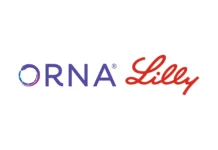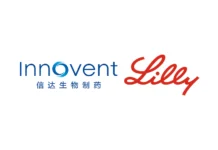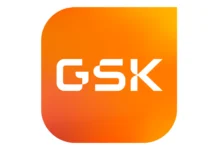Takeda Pharmaceutical Company Limited announced that the European Medicines Agency’s (EMA) Committee for Medicinal Products for Human Use (CHMP) has adopted a positive opinion for the extension of the current conditional approval of ADCETRIS® (brentuximab vedotin) and recommended its approval for the treatment of adult patients with CD30+ Hodgkin lymphoma at increased risk of relapse or progression following autologous stem cell transplantation (ASCT).
On average 50 percent of Hodgkin lymphoma patients relapse after ASCT and those patients with additional risk factors can be at even higher risk of relapse. ADCETRIS after ASCT is a new treatment paradigm based on the largest randomized study ever conducted in relapsed or refractory Hodgkin lymphoma. The AETHERA Phase 3 trial is the first completed study that has explored consolidation treatment immediately following ASCT as a way of extending the effect of transplant for prevention of relapse among people with Hodgkin lymphoma. The use of ADCETRIS in this setting may provide a meaningful treatment option where none currently exist for patients.
“While ASCT is the standard of care following failure of frontline chemotherapy in Hodgkin lymphoma, we know that many patients will unfortunately see their disease return. Early eradication of residual disease through treatment with ADCETRIS has the highest chance of preventing the disease from returning in these patients,” said Dirk Huebner, M.D., Executive Medical Director, Oncology Therapeutic Area Unit, Takeda Pharmaceutical Company. “This opinion, in addition to the recent five year overall survival data in relapsed or refractory Hodgkin lymphoma, further establishes the role of ADCETRIS in improving outcomes for patients. We look forward to the European Commission’s authorization of this new indication and bringing this medicine to physicians and patients in the European Union.”
The CHMP positive opinion for ADCETRIS will now be reviewed by the European Commission (EC). If the CHMP recommendation is formally adopted by the EC, which has the authority to approve medicines for the European Union (EU), ADCETRIS will be approved for marketing of this indication in the 28 member states of the EU, Norway Liechtenstein and Iceland.
This opinion is based on the results of the Phase 3 AETHERA study. The AETHERA trial met its primary endpoint with ADCETRIS (plus best supportive care) treatment resulting in a statistically significant improvement in progression-free survival (PFS) versus placebo (plus best supportive care) as assessed by an independent central review committee (hazard ratio=0.57; p-value=0.001), which equates to a 75 percent improvement in PFS. PFS was assessed after a minimum of two years post initiation of treatment for all study patients. An updated analysis conducted after three years of follow up showed sustained PFS improvement (per Independent Review Facility; HR=0.58; 95%CI (0.41,0.81). A pre-specified interim analysis of overall survival showed no statistically significant difference between the treatment arms. The safety profile of ADCETRIS in the AETHERA trial was generally consistent with the existing prescribing information.
About Hodgkin Lymphoma
Lymphoma is a general term for a group of cancers that originate in the lymphatic system. There are two major categories of lymphoma: Hodgkin lymphoma and non-Hodgkin lymphoma. Hodgkin lymphoma is distinguished from other types of lymphoma by the presence of one characteristic type of cell, known as the Reed-Sternberg cell. The Reed-Sternberg cell expresses CD30.
About ADCETRIS
ADCETRIS® (brentuximab vedotin) is an ADC comprising an anti-CD30 monoclonal antibody attached by a protease-cleavable linker to a microtubule disrupting agent, monomethyl auristatin E (MMAE), utilizing proprietary technology by Seattle Genetics. The ADC employs a linker system that is designed to be stable in the bloodstream but to release MMAE upon internalization into CD30-expressing tumor cells.
ADCETRIS was granted conditional marketing authorization by the European Commission in October 2012 for two indications: (1) for the treatment of adult patients with relapsed or refractory CD30-positive Hodgkin lymphoma following autologous stem cell transplant (ASCT), or following at least two prior therapies when ASCT or multi-agent chemotherapy is not a treatment option, and (2) the treatment of adult patients with relapsed or refractory systemic anaplastic large cell lymphoma (sALCL). In January 2016, the European Commission approved a Type II variation to include data on the retreatment of adult patients with Hodgkin lymphoma or sALCL who previously responded to ADCETRIS and who later relapse. ADCETRIS has received marketing authorization by regulatory authorities in more than 60 countries. See important safety information below.
ADCETRIS is being evaluated broadly in more than 45 ongoing clinical trials, including the Phase 3 ALCANZA trial in CD30+ cutaneous T cell lymphoma (CTCL) and two additional Phase 3 studies, one in frontline classical Hodgkin lymphoma (ECHELON-1) and one in frontline CD30+ mature T-cell lymphomas (ECHELON-2), as well as trials in many additional types of CD30-expressing malignancies.
Seattle Genetics and Takeda are jointly developing ADCETRIS. Under the terms of the collaboration agreement, Seattle Genetics has U.S. and Canadian commercialization rights and Takeda has rights to commercialize ADCETRIS in the rest of the world. Seattle Genetics and Takeda are funding joint development costs for ADCETRIS on a 50:50 basis, except in Japan where Takeda is solely responsible for development costs.
About Takeda Pharmaceutical Company
Takeda Pharmaceutical Company Limited is a global, R&D-driven pharmaceutical company committed to bringing better health and a brighter future to patients by translating science into life-changing medicines. Takeda focuses its research efforts on oncology, gastroenterology and central nervous system therapeutic areas. It also has specific development programs in specialty cardiovascular diseases as well as late-stage candidates for vaccines. Takeda conducts R&D both internally and with partners to stay at the leading edge of innovation. New innovative products, especially in oncology and gastroenterology, as well as its presence in emerging markets, fuel the growth of Takeda. More than 30,000 Takeda employees are committed to improving quality of life for patients, working with our partners in health care in more than 70 countries. For more information, visit http://www.takeda.com/news.
Contacts:
European MediaKate Burd
kate.burd@takeda.com
+44 7974 151510 Media outside Japan/EU
Amy Atwood
amy.atwood@takeda.com
+1-617-444-2147 Japanese Media
Tsuyoshi Tada
tsuyoshi.tada@takeda.com
+81 (0) 3-3278-2417



















